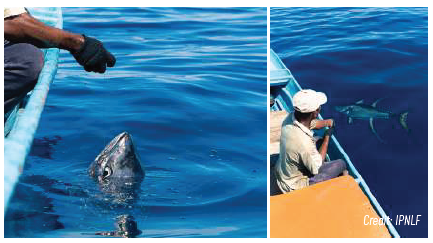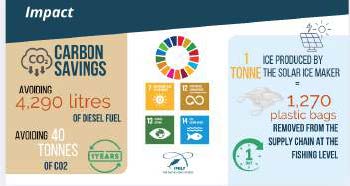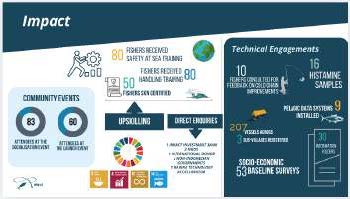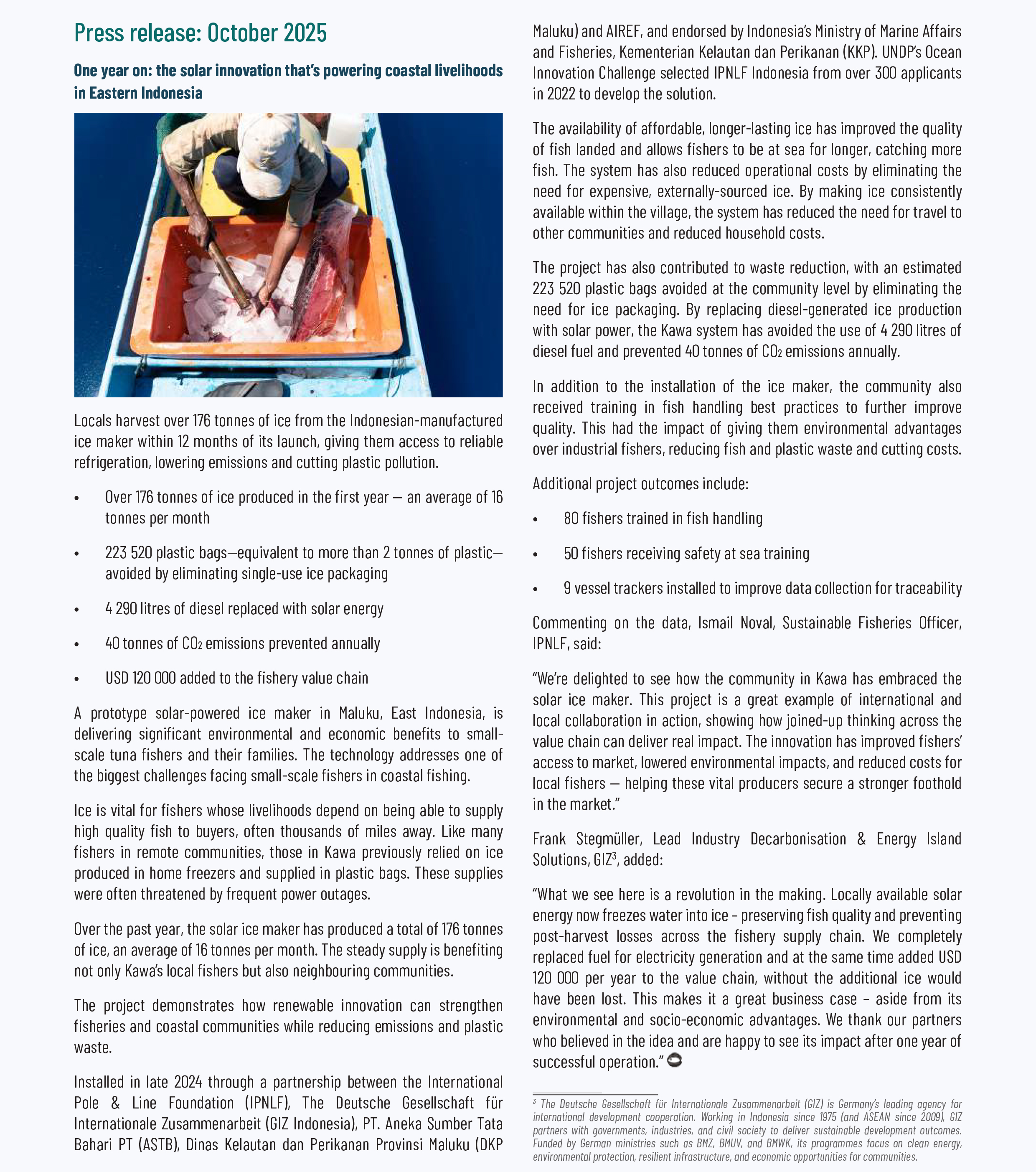Article II 6/2025 - THE SOLAR ICE MAKER PROJECT: UPLIFTING COASTAL COMMUNITIES IN INDONESIA

Furthermore, these small-scale fishers are often out-competed by industrial fisheries for limited resources, sidelined by decision-makers, and forced to compete in seafood markets that fail to offer them a level playing field. To add to their struggles, these communities are often on the front lines of climate change impacts, facing unprecedented challenges that threaten their livelihoods. Therefore, innovative solutions that combat climate change and help them compete on an equal footing in global seafood markets are essential for their future.
Launched by the International Pole and Line Foundation (IPNLF) in 2024, the Solar Ice Maker project supports Indonesia’s vision of a Blue Economy in which the ocean is a crucial driver of economic growth and innovation, improving the livelihoods of coastal communities while preserving the country’s unrivalled biodiversity through healthier oceans and coastal ecosystems. It contributes directly, amongst others, to SDG 12 (Responsible Consumption and Production), SDG 13 (Climate Action), and SDG 14b (providing small-scale fishers access to marine resources and markets). The technology used in the ice maker further minimises waste and aligns with global sustainability standards by reducing the carbon footprint of ice production.
_____________________________________________________________
1 The International Pole & Line Foundation (IPNLF) is a UK-registered charity dedicated to developing, supporting, and promoting socially and environmentally responsible one-by-one tuna fisheries in 33 countries. These traditional fishing techniques are highly selective, minimising bycatch and environmental impact, while supporting the livelihoods of coastal communities. IPNLF collaborates with fishers, businesses, and policymakers to implement sustainable practices, enhance supply chain transparency, and advocate for equitable policies that benefit both people and the planet. IPNLF has 58 members, including the retailers Marks & Spencer, Sainsbury’s, Whole Foods, Edeka, Migros and Woolworths South Africa. Media contact: Clare Harrison (clare.harrison@ipnlf.org).
_____________________________________________________________
100% renewable energy
Impact on people and planet
____________________________________________________________
2 https://ipnlf.org/what-is-the-solar-ice-maker/
____________________________________________________________


























